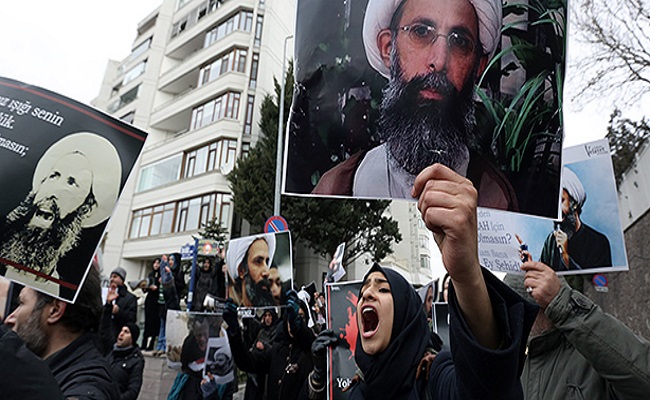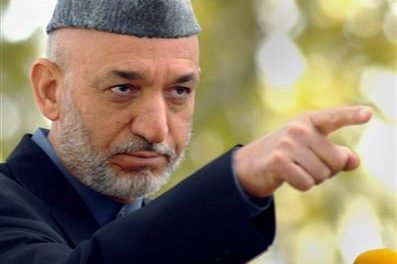By Today Zaman
In light of the recent tension between Saudi Arabia and Iran over the execution of an influential Shiite cleric on Saturday, a number of Middle East experts have said that Turkey could be affected by the fallout of the conflict because Ankara has been giving the impression that it is siding with Riyadh and thus should tread carefully so as not fuel the fire of Sunni-Shiite conflict, which has already had disastrous results in the region.
Shiite leaders in Iran and other countries in the region swiftly condemned Riyadh for the execution of Sheikh Nimr al-Nimr and 46 other prisoners, warning of a sectarian backlash, as Saudi Arabia insisted the executions were part of a justified war on terrorism.
Professor Sedat Laçiner, the former rector of Çanakkale 18 Mart University (ÇOMÜ), told Today’s Zaman on Sunday that Turkey should try to alleviate tensions in the Middle East, not further exacerbate them by taking part in a sectarian bloc headed by Saudi Arabia.
According to Laçiner, Turkey’s involvement in a new military alliance headed by Saudi Arabia in a region beleaguered by sectarian violence and bloodshed could spell disaster for Turkey in the near future.
“Polarization based on religious sectarianism is very dangerous; it starts wars and further bloodies ongoing conflicts,” said Laçiner, who was recently detained for voicing his opposition to the government.
“Turkey is viewed by the world as being part of a Sunni bloc headed and funded by Saudi Arabia and to a lesser extent by Qatar,” he said, adding that precedents from Turkey’s past makes following Saudi Arabia seem abnormal. “Saudi Arabia is not a country that can head a military bloc,” according to the academic.
Tehran is one of the staunchest supporters of Syria’s embattled President Bashar al-Assad and is also suspected of funding and supporting Houthi rebels in Yemen in their fight to overthrow Saudi-backed Yemeni President Abed Rabbuh Mansour Hadi.
Once a mediator for peace in the volatile region, Turkey has become embroiled in the power struggle between the Saudis and their main rival Iran by becoming involved in a Saudi-led 34-nation military alliance, Laçiner warns.
The Iranian Foreign Ministry summoned the Saudi ambassador in Tehran in protest. Iran warned that the Saudi monarchy would pay a heavy price for the death of Nimr on Saturday while in Tehran, a crowd protesting the execution chanted anti-Saudi slogansand some threw stones and Molotov cocktails at the Saudi Embassy, setting part of it on fire.
The killing of Nimr threatens to open a new phase in the ongoing Sunni-Shiite power struggle playing out across the Middle East between Saudi Arabia and Iran. The two are already locked in proxy wars, supporting opposing sides in the civil wars in Yemen and in Syria.
Analyst Ülgen: Turkey must refrain from taking part in Sunni-Shiite conflict
“Turkey is the only country in the region that can approach the Sunni-Shia conflict objectively,” Sinan Ülgen, a former Turkish diplomat, told Today’s Zaman on Sunday.
Noting that all the other countries in the region are somehow divided into the Sunni or Shiite camps, which are headed by Saudi Arabia and Iran, Ülgen said Turkey must do all it can to stay out of the conflict and help mitigate its fallout. “Turkey must be seen, especially by the outside world, as outside the Sunni axis,” he said.
Voicing his opinion that Turkey’s involvement in the Saudi-led military alliance is unconstructive, Ülgen said that the Middle East could be embroiled in a Sunni-Shiite conflict headed by Saudi Arabia and Iran over the next 10-20 years. “If Turkey chooses to become a direct party to the conflict, this will undoubtedly put it at odds with its neighbor Iran,” according to Ülgen.
President Recep Tayyip Erdoğan recently dismissed criticism that a newly formed alliance of Muslim countries led by Saudi Arabia was a sectarian initiative. “The alliance is primarily aimed at fighting terrorism,” he said. “It does not have a sectarian nature.”
Saudi Arabia said last month that 34 nations, including Turkey, have agreed to form a new “Islamic military alliance” to fight terrorism with a joint operations center based in its capital, Riyadh. Shiite-majority Muslim nations Iran and Iraq are among the countries excluded from the alliance.
Saudi Arabia and Turkey agreed to set up a strategic cooperation council to strengthen military, economic and investment cooperation between the two countries after President Erdoğan’s visit to Saudi Arabia last week.



















